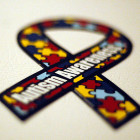
Reclaiming Future’s JMATE Updates and Live Blog
|
Our friends at Reclaiming Futures have settled in at the Joint Meeting of Adolescent Treatment Effiectiveness (JMATE) and have been live blogging the whole thing on their blog. Read on for all the updates. DAY ONE
JMATE 2012: Ask a Judge: Demystifying Juvenile Court and How Judges and Treatment Providers Can Partner Together Successfully by Liz Wu
Earlier this afternoon, I sat in on a JMATE panel with three judges who discussed how Reclaiming Futures works in their courts and why other courts should consider implementing the model. Judge Capizzi of Dayton, Ohio, began the presentation with the problem: too many teens today are struggling with drugs, alcohol and crime. Eighty percent of the youth Judge Capizzi sees have alcohol or other drug problems and many are self medicating.








